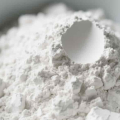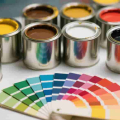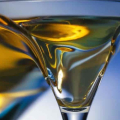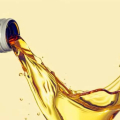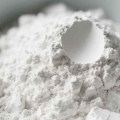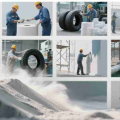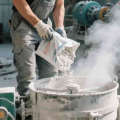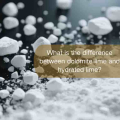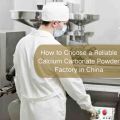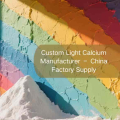- Welcome to China Calcium Carbonate Manufacturer
- WeChat:15078781000
Ground calcium carbonate (GCC) is a versatile mineral powder made by grinding natural rocks like limestone, marble, or chalk. It plays a vital role in industries ranging from construction to healthcare. In this guide, we’ll explore 22 practical uses of GCC across 10+ sectors, breaking down complex technical details into easy-to-understand explanations.
1. Paper Manufacturing
GCC is the second most important material in paper production after wood fiber. Why? Because it makes paper:
Brighter and smoother (improves printing quality)
More durable (reduces warping and moisture absorption)
Cheaper to produce (replaces costly fibers)
High-quality GCC with low abrasion (like European chalk-based GCC) protects papermaking machines from wear and tear. Pure marble or limestone-derived GCC works best here.


2. Plastics Industry
Plastic products rely heavily on GCC as a filler. It’s used in PVC pipes, food packaging, car parts, and more. Benefits include:
Stronger, heat-resistant plastics
Lower production costs
Improved texture and appearance
For example, adding GCC to plastic chairs makes them sturdier while reducing material expenses.


3. Paints & Coatings
GCC is a superstar in paints, acting as both a filler and performance enhancer:
Wall putty: 70–80% GCC
Water-based paints: 20–60% GCC
Matte finishes: GCC reduces shine
Ultra-fine GCC (particles <10μm) speeds up paint mixing, boosts coverage, and cuts titanium dioxide use by 10–20%.


4. Rubber Products
From shoe soles to industrial hoses, GCC improves rubber by:
Adding volume cheaply
Making rubber stiffer
Reducing shrinkage during molding
It’s why your car tires last longer and cost less to make.

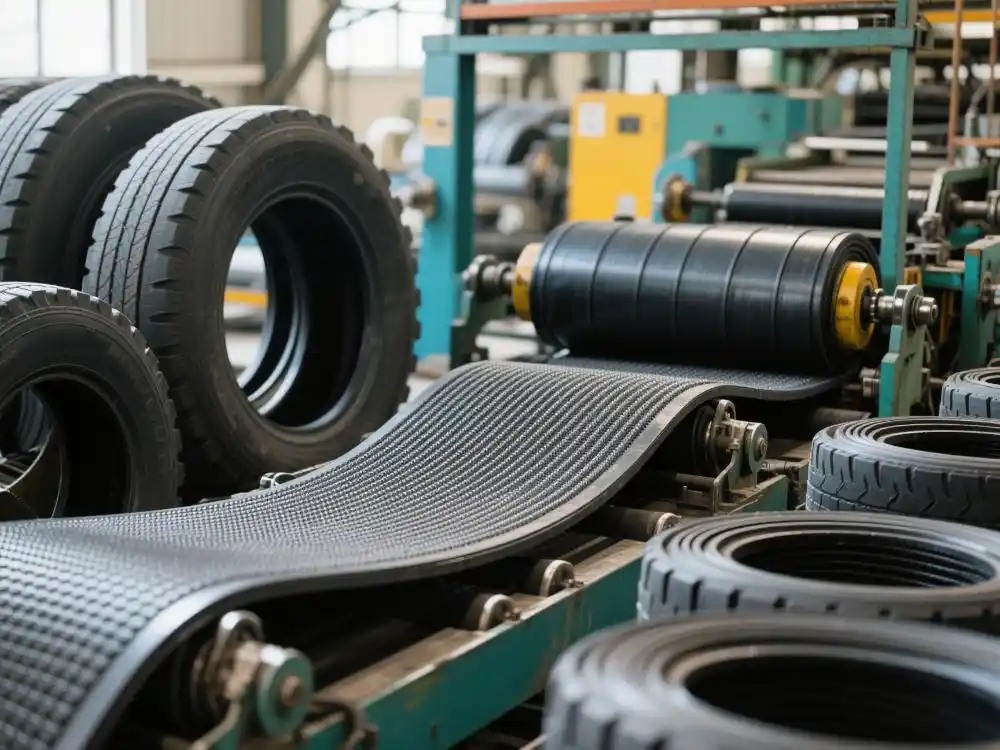
5. Breathable Films
Ever wonder how disposable medical gowns or baby diapers stay dry? GCC is the secret:
50% GCC + plastic creates tiny pores when stretched
Allows air/moisture to escape but blocks liquids
Special stearic acid-coated GCC ensures stable film production.
6. Food Additives
GCC isn’t just for industry—it’s in your kitchen too!
Breads: Helps dough rise
Candy: Prevents clumping
Calcium supplements: Pure GCC is safe to eat
Food-grade GCC comes from ultra-clean limestone processed under strict hygiene rules.
7. Pharmaceuticals
Your calcium tablets likely contain GCC. It’s used to:
Bind pills together
Neutralize stomach acid
Deliver slow-release calcium
Researchers even use GCC to create “smart” drug carriers that release medicine in specific gut areas.
8. Toothpaste
GCC scrubs your teeth clean in budget-friendly toothpaste. Ideal particles are:
Gritty enough to remove stains
Soft enough not to harm enamel
Next time you brush, thank GCC for that fresh feeling!
9. Animal Feed
Chickens and cows need calcium too! GCC in feed:
Strengthens eggshells (mix coarse and fine particles)
Aids digestion (acts like natural grit in bird stomachs)
Farmers save money while keeping livestock healthy.
10. Artificial Stone
Modern countertops blend GCC (75%+) with resin to create:
Eco-friendly surfaces (less plastic resin)
Marble-like looks at lower costs
Low oil-absorption GCC works best here.
11. Sealants
Caulking guns depend on GCC to:
Thicken sealants (10–70% of the mix)
Improve durability (resists cracking)
Builders use GCC-enhanced silicone to weatherproof homes.
12. Construction Materials
GCC strengthens cement and self-leveling floors by:
Filling gaps between crystals
Boosting early-stage strength
A 3:1 GCC-to-silicon mix creates ultra-smooth flooring.
13. Wood-Plastic Composites
Decking boards made with GCC:
Resist rot and insects
Feel like real wood
Cost 30% less than pure plastic
It’s why GCC-filled composites dominate outdoor furniture markets.
14. Stone-Plastic Flooring
“SPC flooring” combines GCC with PVC for:
Waterproof floors
Easy installation
40%+ market share in Europe/US
This GCC application is reshaping home renovation trends.
15. Drilling Fluids
Oil rigs use GCC to:
Plug leaks (acid-soluble “bandage” for rock cracks)
Weigh down drilling mud
0.1–25μm GCC particles adapt to different geological needs.
16. Rare Earth Processing
GCC replaces toxic chemicals in rare metal extraction by:
Reducing wastewater pollution
Cutting costs by 15–20%
High-purity GCC ensures efficient rare earth separation.
17. Glow-in-the-Dark Materials
Surprise! GCC can glow when mixed with rare metals. Researchers use it to create:
Eco-friendly LED phosphors
Self-cleaning coatings
One Chinese patent uses GCC to make bright white pigments.
18. Water Treatment
GCC cleans polluted water by:
Trapping heavy metals (like lead/copper)
Neutralizing acidic waste
Modified GCC works 3x better than natural versions.
19. Lubricants
GCC isn’t just filler—it makes greases:
Last longer under pressure
Protect engines better
Nano-sized GCC outperforms traditional additives.
20. Mining Backfill
GCC helps stabilize underground mines with:
Fast-setting cement
Adjustable strength
But too much GCC weakens the mix—balance is key!
21. Humidity Control
GCC + diatomite creates smart materials that:
Absorb moisture 3x better than silica gel
Prevent mold in walls
A game-changer for museums and green buildings.
22. Chemical Production
GCC is the starting point for:
Citric acid (used in foods/drugs)
Phosphate additives (for fertilizers)
One Chinese company makes food-grade phosphates using ultra-pure GCC.
Why GCC Matters
From your toothpaste to skyscraper materials, ground calcium carbonate uses span nearly every modern industry. Its low cost, safety, and adaptability make it irreplaceable. Next time you see paper, plastic, or paint, remember—GCC is working behind the scenes!
